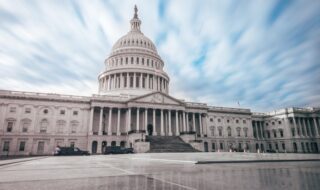February 15, 2022
Energy Workshop Opportunity for Iowa Small Business
The Iowa Waste Reduction Center at the University of Northern Iowa, in partnership with the Iowa Association for Energy Efficiency, is hosting a one-day workshop addressing energy trends and management in Iowa on March 24th at the Embassy Suites in Des Moines. Nationally-recognized energy management expert Dr. Eric Woodroof will be the keynote speaker for this event.
Dr. Woodroof will provide an update on global energy/sustainability/utility trends and an overview of policies and tools that can help Iowa businesses and state facilities be more cost-competitive with neighboring states. The workshop will also feature sessions from Iowa-based experts in the energy industry covering topics and projects that directly address current and future energy management issues in Iowa.
More information on this exciting event including registration and the full agenda can be found at https://iwrc.uni.edu/iowa-energy-efficiency/workshop.
NFIB is a member-driven organization advocating on behalf of small and independent businesses nationwide.
Related Articles














